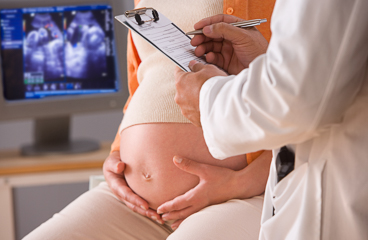Exposure to Toxins During Pregnancy: Care Instructions

Overview
Toxins are things that can harm your unborn baby. They may be chemicals or fumes in your home. Or you may be around things in your community that can be harmful. Some foods and medicines may also be dangerous for your baby.
Some toxins could hurt your baby right away. Others are harmful if you or your child are around them for years.
The best way to keep you and your baby safe is to know what is dangerous. Then you can be careful to avoid those things as much as possible.
Some things that can harm a growing baby include:
- Prescription and over-the-counter medicines.
- Illegal drugs.
- Vitamins, natural health products, and home remedies.
- Alcohol.
- Cannabis.
- Tobacco smoke and vaping.
- Raw or undercooked meat, poultry, eggs, or seafood.
- Unwashed fruits or vegetables.
- Soft cheeses, such as feta, brie, and Roquefort.
- Cold lunch meats, such as hot dogs and deli meats.
- Fish with mercury in it. Avoid shark, swordfish, king mackerel, tilefish, and albacore tuna. Mercury can harm your baby's nervous system.
- Dry cleaning solvents, pesticides, and paint remover. Fumes from these chemicals can harm your baby.
- Radiation. The level of radiation in most X-rays is too low to harm your baby. But while you are pregnant, it is still best to avoid X-rays you don't need.
- Some long airplane flights can expose you to radiation. If you have to fly often, talk to your doctor.
- Lead in old pipes or paint in older homes. Lead can cause a miscarriage or birth defects.
Follow-up care is a key part of your treatment and safety. Be sure to make and go to all appointments, and call your doctor or nurse advice line (811 in most provinces and territories) if you are having problems. It's also a good idea to know your test results and keep a list of the medicines you take.
How can you care for yourself at home?
- Do not drink alcohol. This includes beer, wine, and hard liquor.
- Do not smoke, vape, or allow others to smoke around you. If you need help quitting, talk to your doctor about stop-smoking programs and medicines. These can increase your chances of quitting for good.
- Do not use cannabis or illegal drugs.
- Check your home for peeling lead paint.
- Install smoke and carbon monoxide detectors. Change the batteries as recommended by the manufacturers.
- Do not use pesticides or herbicides.
- Limit remodelling, painting, and craft projects if they involve toxic chemicals.
- Do not eat more than 150 g (5 oz) per month of fish that are known to have higher mercury levels. These include fresh or frozen tuna (not canned "light" tuna), shark, swordfish, marlin, orange roughy, and escolar. Do not eat more than 300 g (10.6 oz) each week of canned (white) albacore tuna each week.
- Avoid raw or undercooked meat, poultry, eggs, and seafood. Do not eat sushi, homemade Caesar salad dressing, and cookie dough.
- Avoid soft cheeses and other unpasteurized milk products.
- If you have a cat, have someone else clean the cat litter box. When gardening or handling soil, wear gloves. Wash your hands afterward. You can get a disease from cat feces that may harm your unborn baby.
- Do not take any over-the-counter medicines, vitamins, natural health products, or home remedies without checking with your doctor or pharmacist first.
- Ask your obstetrician about any medicines that another doctor has prescribed.
- Keep your follow-up appointments. If you think you are being exposed to something toxic, ask your doctor about it.
When should you call for help?
Call your doctor or nurse advice line now or seek immediate medical care if:
- You think you have been exposed to a toxic substance.
Watch closely for changes in your health, and be sure to contact your doctor or nurse advice line if:
- You have questions about whether something is safe for you or your baby.
Where can you learn more?
Go to https://www.healthwise.net/patientEd
Enter G955 in the search box to learn more about "Exposure to Toxins During Pregnancy: Care Instructions".
Current as of: April 30, 2024
